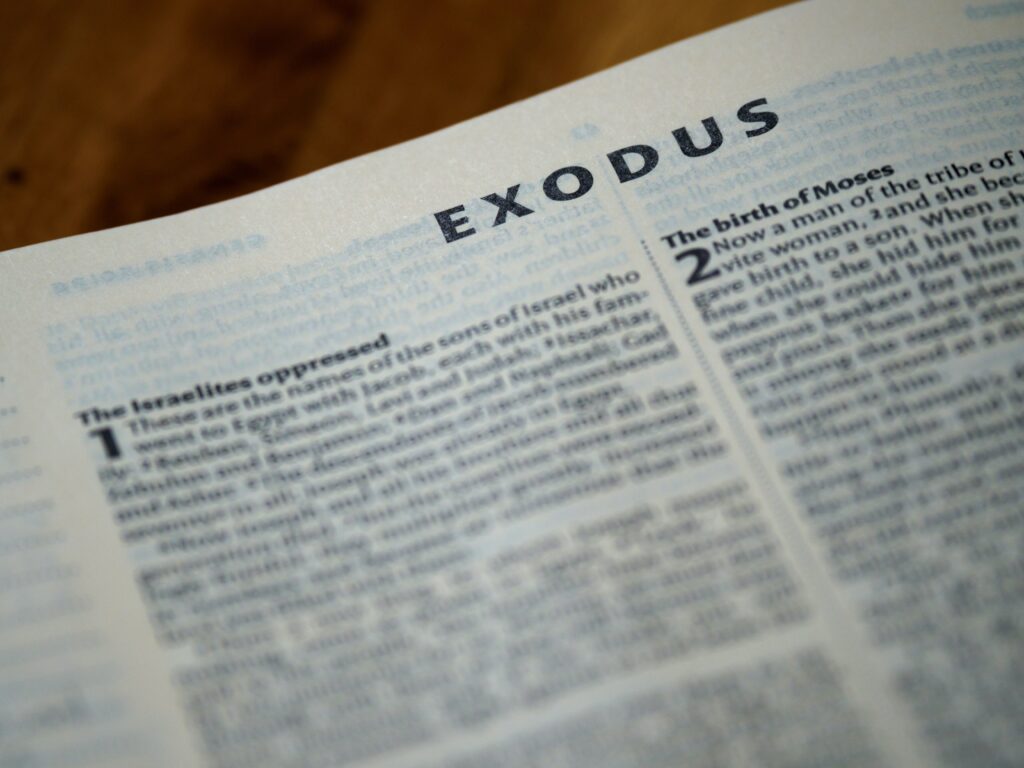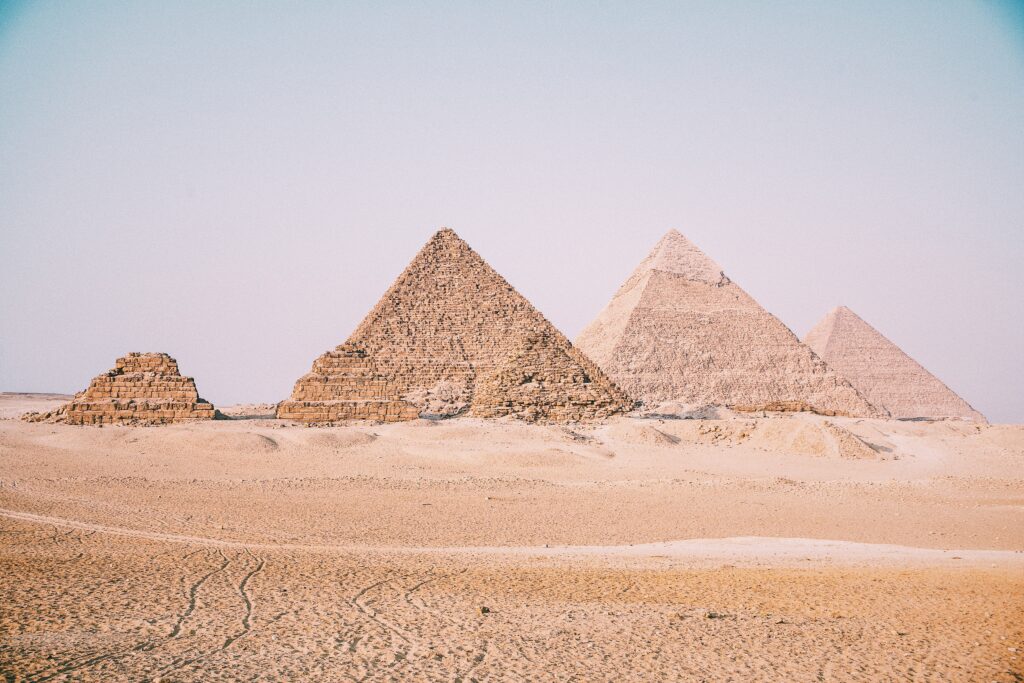Dad and the kids were on a canoe trip down a river in Missouri. Mom was smart and stayed home with my oldest brother. My dad and sisters were in the lead canoe, and my brother and I were following behind. I was about ten years old and very ornery.
If you look at any family photo from this period of my life, I just look like I’m about to do something that will get me in trouble—and this canoe trip took place when I was in my heyday!
My older brother Tim was in the back steering, and I was midway up the canoe paddling. For the entire previous hour, we had repeatedly lagged behind and then sprinted up to Dad’s canoe. It was pretty boring, so we were trying to make things more exciting. I believe Dad made some reference to our acting like two bear cubs—whatever that meant.
During one of our lagging-back times, we noticed Dad steering his canoe through a patch of white water that ran directly into the bank at a bend of the river. The bank was secured by an enormous oak tree. With its roots and trunk extending out into the river, the tree provided a kind of wooden wall. The sight of white water inspired me to dig in, and quickly we were going full speed, racing toward the turn.
As we steered into the corner, it quickly became evident that we were careening out of control. In a matter of seconds, we hit the tree and capsized. The last thing I saw was Dad looking back at us in horror. When the canoe flipped over and dumped us out, the current sucked me down. I caught my tennis shoe on one of the roots and could not break free. I panicked. I was drowning!
My brother surfaced—and realized I had not. He dived back under and, thankfully, found me. He tore off my shoe and dragged me up to air. I was spitting water, gagging, and coughing, as Tim hauled me to the shore. It was the closest I ever came to dying… that year.
My brother Tim had saved my life, and I have been thankful ever since. This same life-and-death issue is what’s at stake—on a much, much grander scale—in Exodus 13.
An Old Testament Picture of Salvation

At the point we are entering their story, the people of God were drowning in the agony of slavery. In a few short generations, they had gone from being honored guests in Egypt to being an enslaved people. Their salvation came as they left Egypt in an event labeled the exodus.
The exodus—specifically, their life-and-death experience at the Red Sea—defined them as the people of God. They recognized in God’s saving action that they were His people and He was their God. The exodus is at the heart of Israel’s self-identity.
Before the exodus, God’s people had been languishing in Egyptian slavery, with the promises He had made to their forefathers just a distant echo. The promised land was nowhere to be found.
The descendants—not yet as numerous as stars in the sky or sand on the seashore—were living under the yoke of slavery. Israel’s being a blessing to the nations had been reduced to being a blessing to one nation, and that nation held them in bondage. They were slaves longing for freedom, wondering if God had forgotten them.
In this climate of hopelessness and despair, Moses and Aaron arrived in Egypt to announce God’s intention to end His people’s enslavement (Exodus 6). That meant Moses and Aaron would be squaring off against Pharaoh.
The next several chapters are like some kind of ancient sci-fi movie as God brought a series of plagues on the Egyptians, including but not limited to frogs, locusts, flies, gnats, boils, and the like. In fact, God demonstrated His power on behalf of Israel with ten miraculous actions. These various plagues and curses on Egypt were designed to secure the Israelites’ release from their slavery to Pharaoh.
God’s final and most severe judgment was the death of all the firstborn in Egypt—all the firstborn livestock and, tragically, all the firstborn sons as well: from the firstborn of Pharaoh who sat on his throne to the firstborn of the captive who was in the dungeon (Exodus 12:29 NASB).
Upon losing his own firstborn son, Pharaoh finally let Moses and the people leave Egypt. Exodus 12:29-42 documents the final plague and the Passover experience of God’s people. (The name Passover speaks of the angel of death passing over the homes of those Israelites who had sacrificed a lamb and put its blood on the doorframe.)
Exodus 13:17 through Exodus 14:31 chronicles the Israelites’ continued trek to freedom as God miraculously parted the Red Sea, gave His people a safe crossing, and destroyed Pharaoh’s army. Nested within this narrative is the teaching of Exodus 13:1-16, as this table shows.
Exodus 11-14 | |
|---|---|
Plague on the firstborn described | Exodus 11 |
Instructions for celebrating the first Passover in Egypt | Exodus 12:1-28 |
Plague on the firstborn enacted | Exodus 12:29-30 |
The Israelites leave Egypt | Exodus 12:31-42 |
Passover regulations | Exodus 12:43-51 |
Israel to offer their firstborn | Exodus 13:1-16 |
Red Sea crossing | Exodus 13:17-14:31 |
We will focus on Exodus 13:1-16, God’s instructions to Israel about the offering of their firstborn.
Set Apart for God

In Exodus 13:1-16 we learn more about the way God wanted the freed Hebrew slaves to respond to His saving work. He had established that the celebration of the Passover was to be an annual event reminding the Israelites that God had rescued them from slavery in Egypt (12:17).
In addition to the Passover celebration, God called for a certain offering (13:1-2, 11-16). In generations to come, the people were to set apart their own firstborn to help them remember the great thing God had done for them in freeing them from captivity.
The Lord spoke to Moses, saying, "Sanctify to Me every firstborn, the first offspring of every womb among the sons of Israel, both of man and beast; it belongs to Me."
Moses said to the people, "Remember this day in which you went out from Egypt, from the house of slavery; for by a powerful hand the Lord brought you out from this place. And nothing leavened shall be eaten….
"Now when the Lord brings you to the land of the Canaanite, as He swore to you and to your fathers, and gives it to you, you shall devote to the Lord the first offspring of every womb, and the first offspring of every beast that you own; the males belong to the Lord.… When your son asks you in time to come, saying, 'What is this?' then you shall say to him, 'With a powerful hand the Lord brought us out of Egypt, from the house of slavery '" (Exodus 13:1-3, 11-12, 14 NASB)
Two elements of Exodus 13 merit our attention. First is the idea of remembering. God wants the Israelites to remember that He brought them out of slavery and freed them from bondage to the Egyptians. God is clearly aware of our tendency to forget.
An Act of Remembering

With Moses as His spokesman, God called the Israelites to remember what He had done for them.
The Passover celebration was a time of remembrance, and God’s people were to continue celebrating—and remembering—the Passover from generation to generation. God wanted the Israelites to remember His saving act.
Said in the negative, God did not want His people to forget that He had saved them. God knew that, over time, people would forget the miracles He had done. Psalms 105 and 106 call God’s people to remember His saving work:
Oh, give thanks to the Lord, call upon His name;
Make known His deeds among the peoples….
Remember His wonders which He has done,
His marvels, and the judgments uttered by His mouth. (Psalm 105:1, 5 NASB)
In Psalm 105:23-28, the psalmist continued his poetic account of this key moment in Israel’s history with about the various plagues God sent. Then in Psalm 106 we find an expression of joyous gratitude:
Praise the Lord!
Oh, give thanks to the Lord, for He is good;
For His lovingkindness is everlasting.
Who can speak of the mighty deeds of the Lord,
Or can show forth all His praise?...
He rebuked the Red Sea and it dried up.
And He led them through the deeps, as through the wilderness.
So, He saved them from the hand of the one who hated them,
And redeemed them from the hand of the enemy.
(Psalm 106:1-2, 9-10 NASB)
Today, around the world, many committed Jewish families celebrate Passover and remember the Exodus. But God intended the Passover to be much more than the mere recollection of a historical event. God also wanted thankfulness to accompany the remembrance.
After all, not only do we forget God’s abundant blessings, but we too often take them for granted if we do remember them.
Giving is a way to show our thankfulness to God. Like the Israelites, He has rescued us from slavery; slavery to sin. He has brought us into a new place of living and we give materially as an expression of thankfulness.
This of course, goes hand-in-hand with the biblical teaching that giving materially is an offering to God. When you give to your church, support a missionary, or help fund a ministry project you are actually expressing thanks to God for your own salvation. Again, in this passage, there is no idea of “investing” in God’s kingdom or looking for a “spiritual” return on the investment.
Maybe your next gift can be accompanied by a prayer of thanksgiving for the salvation that we have in Christ Jesus. In this, God takes delight.
